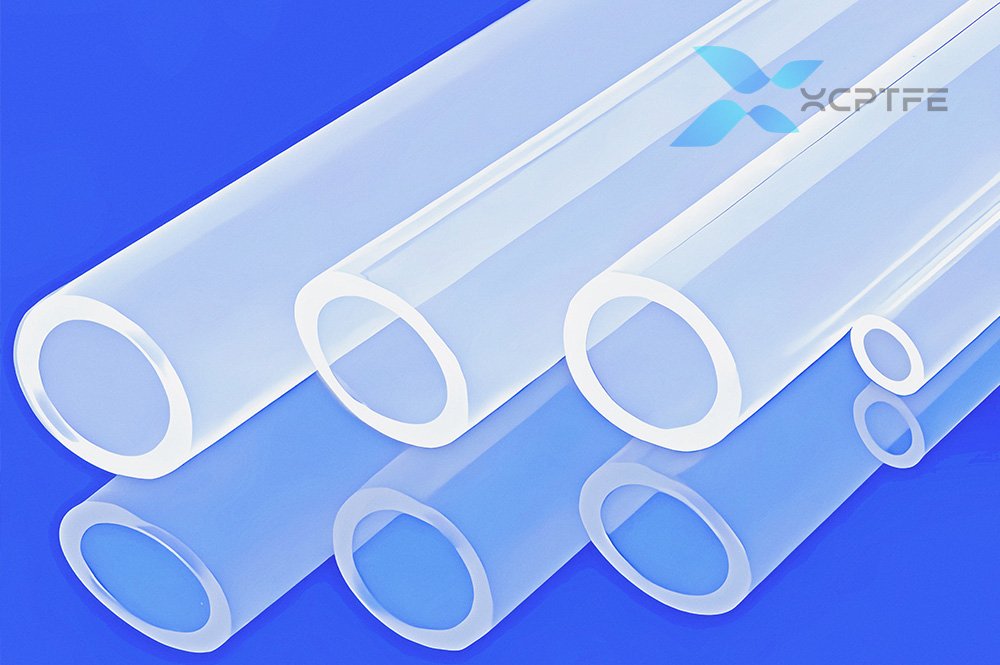Why is PFA material so expensive?
In the world of high-performance plastics, PFA (perfluoroalkoxy alkane) is known as the “king of plastics”. It integrates the excellent performance of PTFE and the processability of FEP, becoming an indispensable material for high-end industries such as semiconductor, medical, and chemical. However, every time the purchaser sees its price tag, it inevitably makes their heart skip a beat.
Why is PFA so expensive? Its high cost is not without reason, but is determined by the complex chemistry, demanding processes, and ultimate performance behind it. Let’s delve deeper and uncover the secrets behind PFA’s “sky high price”.
1、 The preciousness of roots: complex chemical synthesis and expensive raw materials
The manufacturing journey of PFA began with a series of highly complex and dangerous chemical processes.
The challenge of “fluorine”: The core of PFA is the carbon fluorine (C-F) bond, which is one of the strongest chemical bonds in organic chemistry. The formation of this bond requires extremely harsh conditions, involving high temperature, high pressure, as well as highly toxic and corrosive raw materials such as fluorine gas (F ₂), hydrofluoric acid (HF), and perfluoroepoxypropane (PFOE).
Strict purification requirements: Any impurities will destroy the final purity and performance of PFA. Therefore, every step from monomer synthesis to polymerization requires extremely strict and costly purification steps.
Patents and technological barriers: There are only a few chemical giants worldwide that can safely and stably produce high-purity PFA resin (such as Chemours, 3M, Daikin Daikin). The high degree of technological monopoly and patent protection has led to a concentration of raw material supply, naturally maintaining high prices.
2、 The preciousness of craftsmanship: demanding processing conditions and energy consumption
Even if you purchase PFA resin, processing it into pipes, sheets, or parts is equally expensive.
High temperature processing: PFA has a melting point of around 305 ° C, and its processing temperature range needs to be precisely controlled between 350 ° C-400 ° C. This requires specialized high-temperature extruders and injection molding machines, which have much higher costs and energy consumption than ordinary plastic processing equipment.
Equipment corrosion: PFA melt has strong corrosiveness to processing equipment such as screws, barrels, and molds at high temperatures. Manufacturers must use expensive special alloys such as Hastelloy and Inconel to manufacture core components, which have extremely high replacement and maintenance costs.
Process control: PFA is extremely sensitive to processing temperature, pressure, and cooling rate. Even small deviations can cause problems such as internal stress, crystal points, or pores in the product. This requires precise control systems and experienced operators, further increasing production costs.
3、 The Price of Performance: You Pay for Ultimate Performance
In the end, the fee you paid directly corresponds to PFA’s unparalleled performance combination, which ordinary plastics cannot provide.
Ultra high purity: In the semiconductor industry, even the smallest metal ion impurities can contaminate wafers, resulting in millions of dollars in losses. High purity PFA is the only choice for manufacturing pipelines, valves, and containers for transporting ultra pure chemicals, and its purification cost is directly reflected in the price.
Excellent chemical resistance: It can resist almost all strong acids, bases, oxidants, and organic solvents, including hydrofluoric acid, aqua regia, and fuming sulfuric acid. This stability is priceless in harsh chemical environments.
Wide temperature range: able to work continuously at extreme temperatures ranging from -200 ° C to+260 ° C while maintaining flexibility.
Non stickiness and low friction coefficient: ensuring smooth and residue free material transportation, reducing downtime for cleaning and maintenance.
4、 The preciousness of applications: niche, high-value market positioning
PFA is not a mass consumer product. Its target market is industries that have extreme performance
requirements and are relatively insensitive to cost:
Semiconductor industry: transportation systems for ultrapure water, high-purity chemicals, and special gases required for chip manufacturing.
**Pharmaceuticals: Fluid treatment systems in high standard biopharmaceutical processes.
And analytical chemistry: requires absolutely inert, non adsorption, and non precipitation chromatography instruments, pipelines, and containers.
In these fields, the reliability, purity, and trouble free operation time of equipment are far more important than the initial material cost. A pollution or shutdown caused by material failure may result in losses far exceeding the total price of PFA materials used throughout the year.

